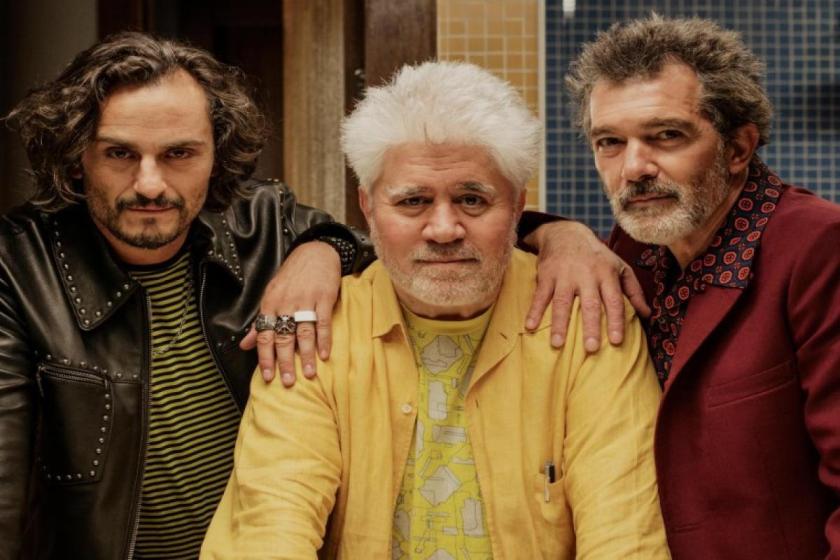The Almodovar who made his name as an all-out provocateur in the Eighties considers that wild art’s becalmed far side, in this quietly wonderful meditation on where it’s left him. Antonio Banderas leads familiar faces from throughout his career with an atypically quiet, Cannes prize-winning performance as Salvador Mallo, a world-famous, gay Spanish director who’s seemingly washed up.
Where the template for such films, Fellini’s 8½, was a pyrotechnic investigation of a stalled auteur at work, Pain and Glory is about the rest of a filmmaker’s life: the silences and stasis between films, when developing a smack habit beats boredom, and attending anniversary screenings of your old films seems easier than making new ones. Such an event makes Salvador seek out Alberto (Asea Etxeandia), the wired star he split from 32 years before, much as Banderas quit Almodovar for Hollywood in the Nineties.
 There is one old-school Almodovar set-piece, as director and actor attempt their scheduled post-screening Q&A to a packed cinema by phone, having been waylaid by a heroin session, only for the audience’s leading questions to wreck their relationship again.
There is one old-school Almodovar set-piece, as director and actor attempt their scheduled post-screening Q&A to a packed cinema by phone, having been waylaid by a heroin session, only for the audience’s leading questions to wreck their relationship again.
Mostly, Salvador slips into reveries of his rural childhood with his mother Jacinta (Penelope Cruz, pictured below left). Living in a village cave during Spain’s petrified, late-Franco 60s, Salvador dreams of cinema and The Beatles, and has his sexuality confirmed when he faints at the sight of a beautiful young man bathing.
Banderas is grey, frail and shuffling as an ageing Salvador beset by doubts and crippling ailments. Unable to imagine ever filming again, he is circumscribed and eaten by pain. Adopting Almodovar’s mannerisms and fashion sense, he murmurs and glances obliquely, seeming to lack all confidence. With the camera close up, and Alberto Iglesias’s score sparely ambient, Banderas draws you in.
 Only in remembered conversations with Jacinta near her death do his sensuous eyes connect directly. “It’s a confessional text,” Salvador tells Alberto of a piece of writing, and so is Pain and Glory, as Almodovar tells his mother things he couldn’t in life. “I owe you everything,” he says. And then, this gay son raised in reactionary times concedes his guilt: “I’ve failed you simply by being who I am. And I’m very sorry.” The reappearance of a lover from Salvador and Almodovar’s fabled 80s, the former’s near doppelganger Federico, is similarly moving and fond.
Only in remembered conversations with Jacinta near her death do his sensuous eyes connect directly. “It’s a confessional text,” Salvador tells Alberto of a piece of writing, and so is Pain and Glory, as Almodovar tells his mother things he couldn’t in life. “I owe you everything,” he says. And then, this gay son raised in reactionary times concedes his guilt: “I’ve failed you simply by being who I am. And I’m very sorry.” The reappearance of a lover from Salvador and Almodovar’s fabled 80s, the former’s near doppelganger Federico, is similarly moving and fond.
Tarantino has just subsumed his childhood LA memories into Once Upon a Time in Hollywood’s wayward elegy for its cinema. A decade older, and bearing the battle-scars of the post-Franco cultural eruption he symbolised, Almodovar has more to say about life beyond the screen. With final, profoundly simple sleight of hand, though, a film seemingly about lack of filmmaking also proves to be consumed by cinema.
One way in which Salvador isn’t Almodovar is that the real director remains coolly potent. This auteur on the verge of a nervous breakdown is his masterfully understated summation of how it feels to outlive your notoriety, health and maybe times, and still make art from the memories.















Add comment